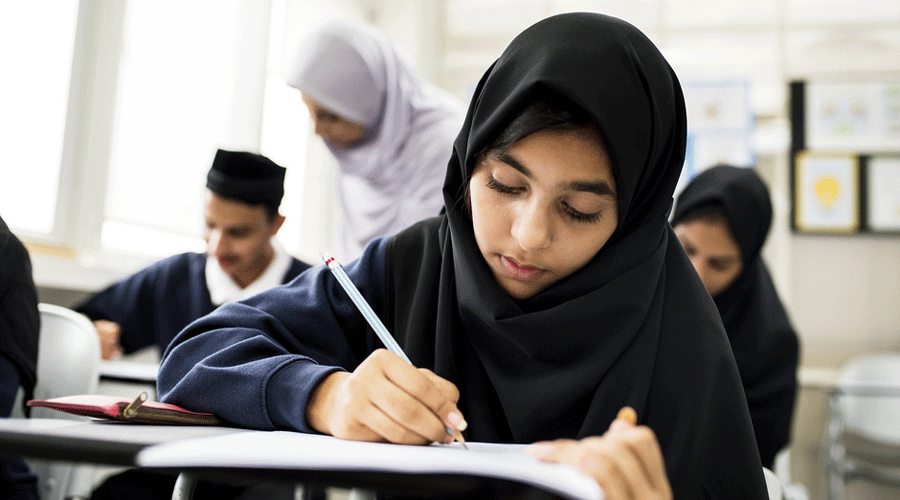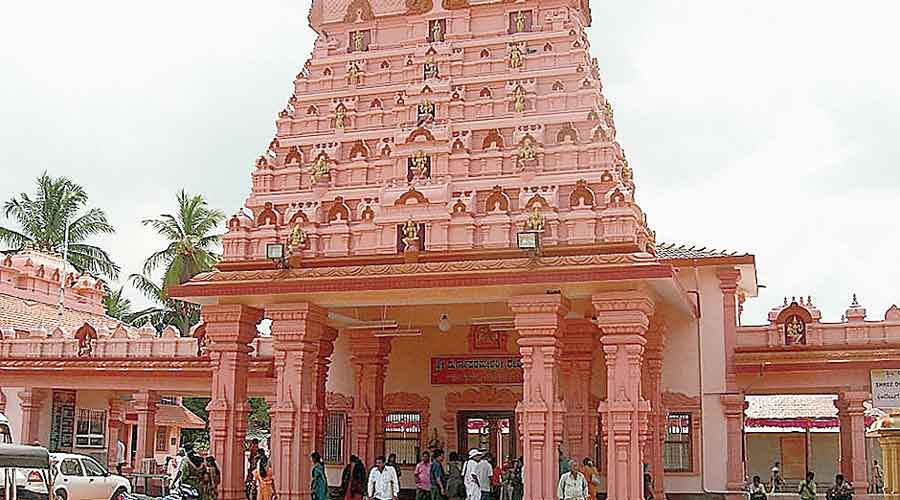Thousands of Muslim girls had to remove their hijab to write Monday’s Class X state board exams in Karnataka, with ministers warning of strict action against anyone violating the government’s headscarf ban at its schools and colleges.
Many Muslim girls who wear the hijab had been skipping school since the state’s BJP government banned the headgear and Karnataka High Court upheld the decision on March 15.
But religious leaders and Opposition politicians have appealed to the girls not to boycott the exams and harm their education and careers.
“We urge Muslim students not to skip their exams even if they have to remove the hijab. The board exams decide their future and no one should use the hijab as a reason to spoil their career and life,” the imam of the Juma Masjid of Bangalore, Maulana Mohammed Maqsood Imran, told The Telegraph.
“Four appeals (against the high court judgment upholding the school hijab ban) are pending with the Supreme Court. Let us wait for the court’s judgement rather than take unreasonable decisions that will spoil the children’s life.”
Muslim religious leaders had earlier opposed the exam boycott calls sounded by some within the community.
Former chief minister H.D. Kumaraswamy of the Janata Dal Secular too urged the students to focus on writing their exams.
“Students of all faiths should write the exam keeping their religious feelings aside. Do not skip the exam for any reason. A time will come to respect the feelings of children by clearing (the) tense atmosphere,” he tweeted.
Bans on assemblies of more than five people, under Section 144, were clamped around the 3,440 centres across the state where more than 8.74 lakh students wrote their exams.
Such prohibitions are usual during exams every year but took on an added significance this time in the light of the recent pro-hijab protests and the warnings issued to the examinees by ministers.
“There is additional deployment of police in sensitive areas. The police will naturally act against those who violate the government rules. But I hope no child will give them a chance to take such action,” primary and secondary education minister B.C. Nagesh said on Monday.
Home minister Araga Jnanendra said: “Whoever violates the rule will have to face action. Everyone must obey the court order and write their exam after removing the hijab.”
On Saturday, the state government had issued a circular making it mandatory for students of all its schools to write their exams in their school uniform.
Udupi deputy commissioner Kurma Rao, who visited several exam centres, told reporters the uniform rule was strictly followed by all students.
Students of private schools writing their exams in another private school could keep their hijab on if neither school has banned the headscarf.
Everywhere else, girls who had arrived wearing the hijab took it off before entering the exam centre.
The controversy began late last December when a government pre-university college in Udupi stopped hijab-wearing students from entering classrooms. Eight Muslim girls refused to budge and had to spend the class hours loitering on the premises.
Six of these eight students approached the high court saying wearing religious attire was their constitutional right. The issue snowballed as Sangh parivar outfits heckled hijab-wearing students and encouraged Hindu students to don saffron scarves in class, while some Muslim groups protested the ban.
In an interim order, the high court banned all religious clothing from campuses. A fortnight ago, it upheld the state government’s decision, ruling the hijab was not part of essential religious practice in Islam. The matter is now before the Supreme Court.











